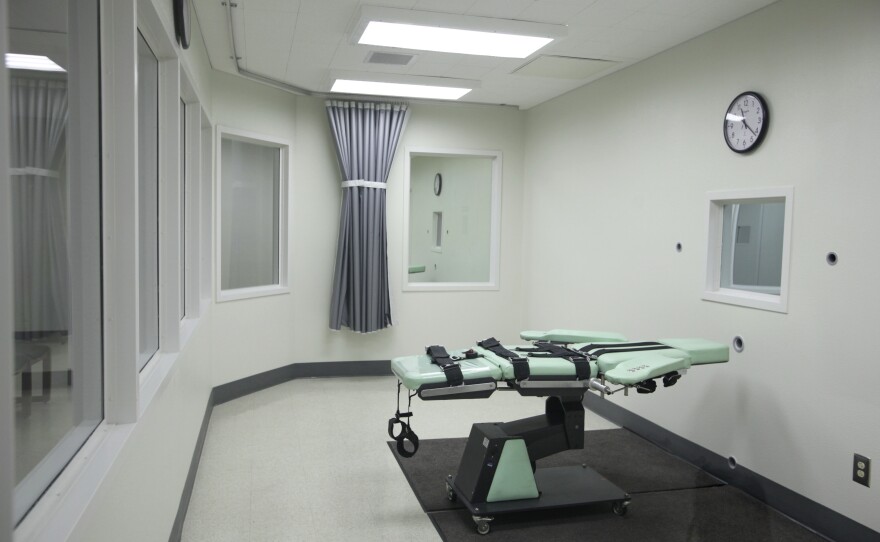Supporters of capital punishment in California claimed victory after the state Supreme Court upheld a voter-approved measure to speed up death sentences, but they still have to clear a major obstacle before executions can resume: Getting approval for a new lethal injection method.
The next step in that fight is expected on Friday, when state corrections officials say they will seek regulatory approval for a revised drug protocol to execute inmates.
RELATED: California Supreme Court Upholds Measure To Speed Executions
The new regulations would allow California's death row inmates to be executed using one of two different drugs or choose the gas chamber.
The revised proposal would follow a highly anticipated California Supreme Court ruling on Thursday about Proposition 66, a push to "mend not end" capital punishment in California by tightening rules on court appeals by inmates.
Condemned inmates in California currently languish for decades and are more likely to die of natural causes than from lethal injection. There are nearly 750 inmates on death row, and only 13 have been executed since 1978 — the last in 2006.
Nearly 400 death penalty appeals are pending.
In its ruling, the state Supreme Court unanimously upheld the mandate in Proposition 66 that lower-level courts hear some appeals and reject those that are not filed on time.
It also upheld provisions in the measure limiting successive appeals and filing extensions.
But with two of the seven justices dissenting, the state Supreme Court said a five-year deadline on appeals by condemned inmates in the measure was advisory, not mandatory — a point that supporters of the measure had conceded during oral arguments.
With the timeline provision limited, it was not clear whether the measure would succeed in accelerating death sentences, said Robert Weisberg, a criminal justice expert at Stanford Law School.
"Various people in the judicial system might say, 'I feel an obligation to move these cases faster,' " he said.
But without a mandate, Weisberg said, others might view the deadline as "meaningless, and therefore nothing may change."
Proposition 66 also ends the requirement that prison officials receive approval from state regulators for their new lethal injection plan. The fight over the drug procedure has been a significant obstacle to resuming the death penalty.
Officials, however, said they would still submit the revised regulations to the state Office of Administrative Law and follow the normal regulatory process until the justices' decision becomes final, which could happen as soon as late next month.
RELATED: Repeal The Death Penalty? 6 Quotes From ‘Yes’ And ‘No’ Campaigns
Corrections officials would choose between the powerful barbiturates pentobarbital or thiopental for each execution, depending on which one is available.
They initially proposed using any one of four drugs, but they dropped two of them after opponents said those drugs had never been used in executions and questioned whether the drugs would be safe and effective.
A federal judge in 2006 ordered changes to the state's lethal injection procedures, but said California could resume executions if it began using a single drug.
The new rules eventually will have to pass the scrutiny of a federal judge before they can be implemented.





